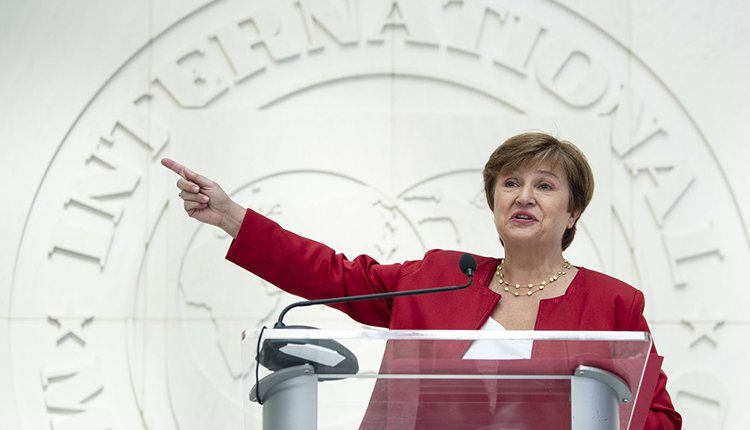IMF chief says coronavirus economic fallout is worse than 2008 global financial crisis
The coronavirus pandemic has sparked an economic fallout “like no other” — one that is “way worse” than the 2008 global financial crisis, the International Monetary Fund’s managing director said on Friday.
“Never in the history of the IMF have we witnessed the world economy come to a standstill,” Kristalina Georgieva said during a news conference at the World Health Organisation’s headquarters in Geneva.
This is “humanity’s darkest hour, a big threat to the whole world and it requires from us to stand tall, be united and protect the most vulnerable of our citizens.”
Kristalina said the IMF is coordinating with the World Bank and other international financial institutions to alleviate the economic impact from the outbreak, which has infected more than 1 million people in almost every country worldwide, and killed more than 55,000 people.
The IMF is encouraging central banks in developed countries to support emerging markets and developing countries, she added.
“Our main preoccupation in this crisis is to rapidly step up financing for countries, especially emerging markets, developing countries that are faced with very significant and growing needs,”
The IMF has a $1 trillion war chest, Kristalina said, adding “we are determined to use as much of it as necessary.”
More than 90 countries so far have applied for assistance from those funds, the IMF official revealed.
“We have never seen ever such a growing demand for emergency financing,” she added.
Kristalina urged countries that tap that financing to use it to pay doctors, nurses, and other health-care workers as well as for other health-care needs, CNBC reported.
The developing economies have been hardest hit by the outbreak, and often have fewer resources to protect themselves from the economic fallout, she added.
“We know that in many countries health systems are weak,”
Compounding the harm, Kristalina said, is “a flight to safety” by investors who are pulling their money out of vulnerable countries as the outbreak spreads.
Nearly $90 billion in investments have “flown out” of emerging economies during the virus outbreak, she noted.
“This is way more than during the global financial crisis, and some countries are highly dependent on commodities exports. With prices collapsing, they are hit yet again.”
“The same way that the virus hits vulnerable people with medical preconditions hardest, the economic crisis hits vulnerable economies the hardest,”


